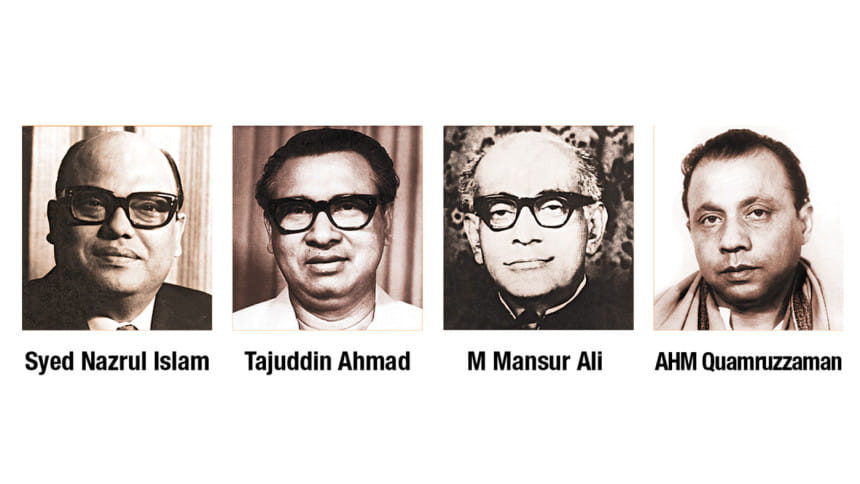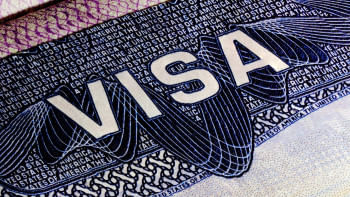Jail Killing Day: Too dark for an autumn morning

The assassinations of Bangabandhu Sheikh Mujibur Rahman and four national leaders are intricately linked. They were assets of the nation. I think we should question how much the country has progressed towards the nation that these leaders dreamed of while they were alive.
The clock struck around four in the morning.
Wearing khakis and carrying sten guns and SLRs (self-loading rifles), a band of five army personnel arrived at the erstwhile Dhaka central jail on an autumn morning in 1975. As they entered the jail, one of the five introduced himself as Captain Muslemuddin, attached to the Bangabhaban.
Inside the prison were four national leaders -- Syed Nazrul Islam, Tajuddin Ahmad, AHM Quamruzzaman and M Mansur Ali. They had been put behind bars since the assassination of Bangabandhu Sheikh Mujibur Rahman, on August 15, 1975.
Moments later, the leaders, who played pivotal roles in the formation of the Mujibnagar government in exile in 1971, were herded into a cell.
The army men swiftly marched into the prison compound, shooting and bayonetting them to death. Thus, Bangladesh was robbed of its top national leaders in the early hours on this day in 1975.
And the tragedy was compounded as it took 21 long years for the nation to start the trial of the case. It started only after a favourable political scenario emerged in 1996.
A first information report (FIR) was filed with Lalbagh Police Station a day after the brutal murder and an inquest report was also prepared. But the infamous Indemnity Ordinance blocked the investigation and the trial.
On August 18, 1996, the Criminal Investigation Department (CID) of police reopened the probe. In 2004, the trial court concerned in Dhaka handed punishment to the 12.
But justice still eludes the nation as the government could implement the verdict only in the case of Abdul Majed, of the 12 convicted killers.
Majed, who was sentenced to life imprisonment in the jail killing case, was arrested on April 7 last year after decades of absconding. Four days after his arrest, Majed, also a convicted killer of Bangabandhu, was executed in connection with the Bangabandhu murder case.
We demand the formation of a commission to identify and punish national and international hands behind the killing of the four national leaders. It will stop the repetition of such gruesome killings.
Other than Majed, progress regarding the other 11 killers has not been satisfactory.
The government could not even trace eight of them despite making efforts through diplomatic channels, intelligence agencies and the Interpol to bring the fugitives back home.
Convicted killers Rashed Chowdhury and Noor Chowdhury have been hiding somewhere in the USA and Canada.
As the nation pays tribute to the four slain national leaders on the 46th anniversary of Jail Killing Day today, the government insists that bringing all the 10 fugitives back home is one of its top priorities and all possible efforts are underway to this end.
"The government has continuously been trying and working very seriously to bring the fugitive killers of Bangabandhu and the national leaders," Law Minister Anisul Huq told The Daily Star yesterday.
On several occasions, he said the government was planning to set up a commission to identify all those behind the killings of Bangabandhu and the four leaders.
About the commission, Anisul, who was principal state counsel in the Bangabandhu murder and jail killing cases, said, "As I have said earlier, a commission must be constituted. But I cannot say the specific date and time for its formation."
The Supreme Court's Appellate Division in its judgment in the jail killing case observed that the assassination of the four national leaders was the result of a criminal conspiracy.
The accused couldn't have carried out the killings unless very powerful state machineries had been involved in the conspiracy, the verdict said.
The apex court on April 30, 2013, upheld a Dhaka court's verdict that awarded death sentence to three former army personnel – Muslemuddin, Marfat Ali Shah and Abdul Hashem Mridha -- and life imprisonment to eight other people for killing the four leaders.
The eight jailed for life are Khondaker Abdur Rashid, Shariful Haq Dalim, Noor Chowdhury, Rashed Chowdhury, Ahmed Shariful Hossain, Abdul Majed, Kismat Hasem and Nazmul Hossain.
Four other accused -- Syed Farooq-ur Rahman, Sultan Shahriar Rashid Khan, Bazlul Huda and AKM Mohiuddin Ahmed -- were executed in the Bangabandhu murder case in 2010.
The following year, the SC exempted the four from the charges of killing the national leaders as they were executed.
Earlier in August 2008, the High Court had upheld the capital punishment to Muslemuddin and acquitted Marfat, Hashem, Farooq, Shahriar, Mohiuddin and Bazlul Huda in the jail killing case.
Barrister Abdullah Al Mamun, the state defence lawyer appointed by the SC for Marfat and Hashem, told this correspondent on October 29 that he did not know the whereabouts of the two convicts.
"Marfat Ali Shah, Abdul Hashem Mridha or their relatives have never communicated with me."

 For all latest news, follow The Daily Star's Google News channel.
For all latest news, follow The Daily Star's Google News channel. 



Comments